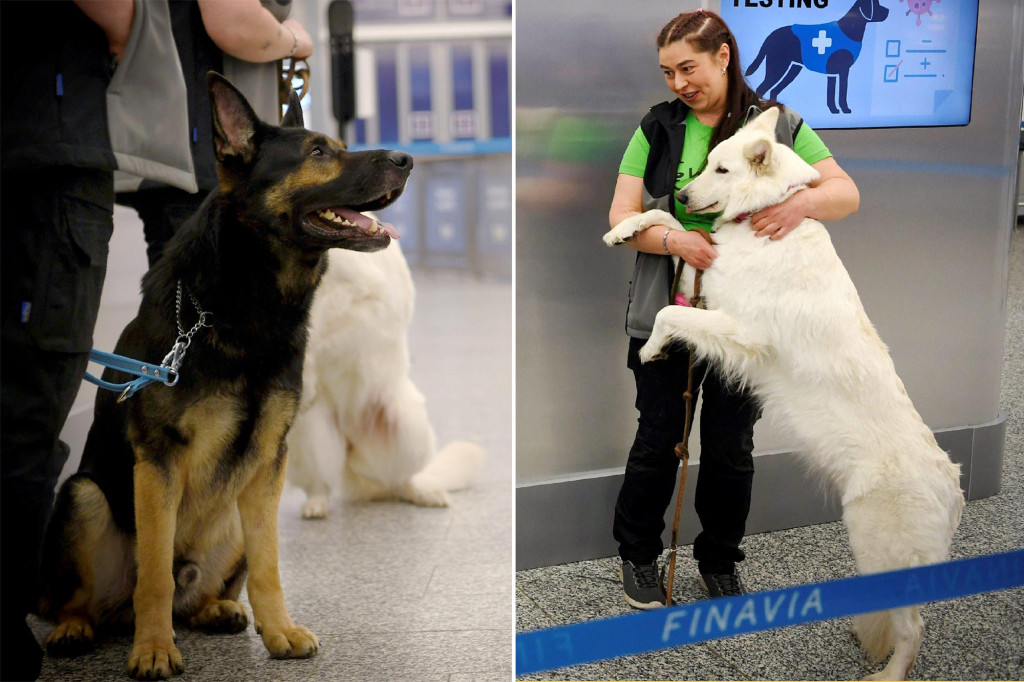Dogs can detect COVID-19 in humans quicker and more accurately than the gold-standard nasal swab, according to a new study.
A Finnish scientist, who’s been testing the disease-detecting pups at Helsinki Airport, said her pooches identified a number of people who had the virus but had tested negative after taking polymerase chain reaction (PCR) nasal tests, The Times reported.
Days after the dogs — Miina, Kössi and Valo — diagnosed the travelers, the supposedly negative passengers started experiencing symptoms.
Dr. Anna Hielm-Björkman said this suggests pooches may be able to sniff out the virus at the very beginning stages of infection.
“They’re actually finding PCR negatives that are going to be PCR positives in a week’s time,” the scientist, who’s yet to publish her findings, told the outlet.
Researchers in Finland aren’t the only ones who’ve realized man’s best friend’s latest skill — from France to Lebanon to the UAE, scientists are reporting the same experience, Hielm-Björkman said.
“It’s kind of a problem when you have a test that is so much better than the gold standard, because you cannot validate it in any normal way,” she said.
The olfactory glands in a dog’s nose have long been praised for its extraordinary ability to sniff out everything from drugs to bombs, which humans and machines cannot currently detect.
So when the World Health Organization implored health officials globally to “test, test, test” to help get the pandemic under control, researchers quickly wondered if dogs could play a role.
“Most diseases have an odor. The way your body responds, the way your metabolism changes, gives off a distinct smell,” James Logan from the London School of Hygiene and Tropical Medicine told The Times. Prior to the pandemic, Logan was researching how well dogs could sniff out malaria.
“Science cannot yet recreate instruments as exquisitely sensitive as their noses,” he added.
Logan’s team is now working with the charity Medical Detection Dogs and he hopes pups will be able to what labs are struggling to do — quick screenings on a large scale.
“A dog can work in different environments. Once he knows what that smell is, he can tell you very rapidly,” Claire Guest, the charity’s chief executive, told the outlet.
“You could have a rapid screening of individuals as they’re moving, perhaps in an airport. Dogs would tell you immediately whether that person ought to be taken for a test.”
While pups will never be the panacea needed for testing because training is too difficult, researchers are hoping they can imitate the dog’s olfactory glands with machines.
“We’re also training a lot of machinery to do the same, so we hope that in the near future there will be more than just the dogs that are smelling disease,” Hielm-Björkman explained.
The COVID-sniffing dogs are also much better at avoiding false negatives than the PCR test — another thing scientists hope to mimic in future testing technology.
“They are much, much more accurate than any PCR at the moment,” Hielm-Björkman said.
“PCRs are around 70 percent. The good dogs never go under 100 percent.”

























